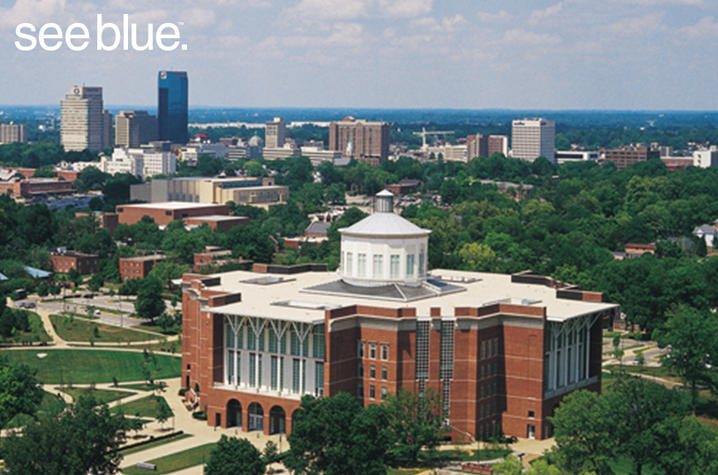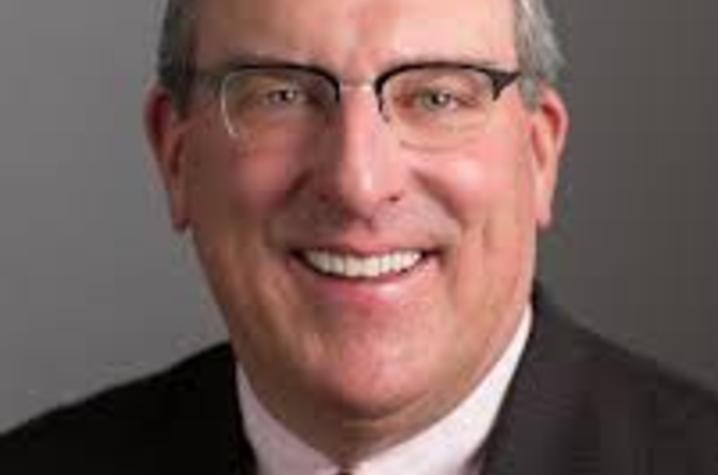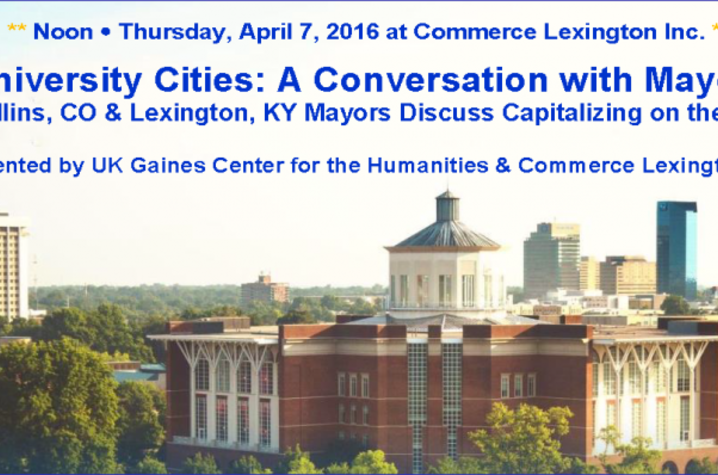Lafayette Seminar Invites Mayors to Talk Value of University Cities
LEXINGTON, Ky. (March 30, 2016) — The relatively new concept of university cities is the focus of the 2016 Lafayette Seminar in Public Issues presented by the University of Kentucky Gaines Center for the Humanities. This year's event will bring together Lexington Mayor Jim Gray and Mayor Wade Troxell, of Fort Collins, Colorado, in a lunch discussion on the value of a community being considered a "university city." "University Cities: A Conversation with Mayors" begins noon Thursday, April 7, at Commerce Lexington Inc., located at 330 E. Main St. in downtown Lexington.
Often referred to as a college town, Lexington has evolved into a "university city" in recent years according to research by Lexington's own Scott Shapiro, senior advisor to Mayor Jim Gray, which was confirmed in an analysis by UK Department of Statistics Professor and Chair Arnold Stromberg.
As university cities, Lexington and Fort Collins, Colorado, are part of a small group of six communities across the U.S. that fit this new classification. Being classified as a university city is simple — each has a major research university in its urban core, a population between 250,000 and 1 million, and students making up at least 10 percent of its population. Other communities matching this description are Madison, Wisconsin; Ann Arbor, Michigan; Durham-Chapel Hill, North Carolina; and Lincoln, Nebraska.
Research shows the advantage of these select communities is that relationship between the university and city. "With universities there's research money that flows in, they hire a lot of people — a lot of well-educated people — and they tend to ride out recessions pretty well, so they're an anchor of stability in any community," Shapiro said. "That’s true of any research university. But when you have a college town, you can only leverage that so much. When you grow into a university city, with a diversified economy, there's all kinds of network effects that happen."
Research from labor economist Enrico Moretti shows that having more highly degreed people in a university city not only raises median income for those individuals, it also raises productivity and income for those without degrees in the same city. Other research finds the prevalence of entrepreneurship and patents available in university cities raises the level of patent use by companies that have no direct connection to the university. In addition, university cities often feature outsized arts and culture sectors that in turn morph the city into what Shapiro calls a "culturally rich idea-filled community."
Like large cities, university cities have high rates of educational attainment, new business startups and economic growth. But similar to small towns, university cities also have low cost of living, low unemployment rates and low violent crime rates. More on Shapiro's research can be found here: https://nextcity.org/daily/entry/what-is-a-university-city-new-definition-urban-typology.
As mayor of Lexington, Jim Gray represents a vibrant university city of 300,000 surrounded by the most beautiful horse farms in the world. In his first term, Mayor Gray drew upon his experience as CEO of Gray Construction, an international design-build firm, to bring an executive’s approach to government. Facing deficits, his administration instituted a series of major reforms. Gray cut in half the city’s annual health insurance costs while improving employee satisfaction through an on-site medical clinic and pharmacy. His reform of the police and fire pension system preserved the retirements of more than 1,000 retirees while saving the city $45 million in just three years. Those savings in turn allowed Gray to invest in public safety, including hiring more police officers and replacing outdated equipment.
Now in his second term, Gray continues to focus on his three core themes: creating jobs, running government efficiently and building a great American city. Gray holds a bachelor's degree from Vanderbilt University and previously received a Loeb Fellow appointment from Harvard University.
Elected mayor of Fort Collins, Colorado, in April 2015, Wade Troxell took a new post serving his community after two terms representing the city's District 4 as a councilmember from 2007 through 2015. Troxell is a lifelong resident of Fort Collins. When he was 14 years old, he was “Mayor for a Day” for then-mayor Karl Carson. He grew up in the community, attended local schools, and was a Colorado State University (CSU) student-athlete. He earned three degrees in engineering at CSU, and has been on the CSU mechanical engineering faculty for 30 years.
A Fellow of the American Society of Mechanical Engineers, Troxell's scholarly research focuses on creative innovation, philosophy of engineering and intelligent control of distributed systems. His business experience includes co-founding Sixth Dimension Inc., a provider of a communications and control network for the electric power industry integrating in distributed energy resources. As president/COO, Troxell led this early-stage company through three rounds of venture financing involving some of the top energy venture firms before it was acquired in 2003 by Comverge Inc. He is a cofounder and member of both the Colorado Clean Energy Cluster and the Water Innovation Cluster, partnerships of public organizations and private companies whose purpose is to make northern Colorado the “go to” place for clean energy and water innovation.
Mayors Gray and Troxell will explore these benefits and more for their communities at the "University Cities" lunch. The event is free and open to the public, but seating is limited. Individuals wanting to attend are asked to RSVP by April 1 here. Details on parking availability is included within the registration information. This year's seminar is co-sponsored by Commerce Lexington Inc.
Presented annually, the Lafayette Seminar in Public Issues provides an opportunity for Lexington community members, elected officials, and faculty and students to discuss issues facing the community. Previous topics have explored the local economy, town and gown relations, community gardening, public art and the creation of successful downtown spaces.
Founded in 1984 by a generous gift from John and Joan Gaines, the Gaines Center for the Humanities functions as a laboratory for imaginative and innovative education on UK's campus. Part of the Academy for Undergraduate Excellence within the Division of Undergraduate Education, the center is devoted to cultivating an appreciation of the humanities in its students and faculty. The center embraces varied paths of knowledge and particularly strives to integrate creative work with traditional academic learning.
Commerce Lexington Inc. focuses on promoting entrepreneurial start-ups, business expansion and retention, and new job creation; advocacy; workforce development; connecting people and businesses; community, minority, and small business development; and the cultivation of local and regional leadership. The organization's mission is to represent its members, creating the environment and opportunity for economic prosperity and quality living in central Kentucky.
For more information about the 2016 Lafayette Seminar, contact the Gaines Center at 859-257-1537.
UK is the University for Kentucky. At UK, we are educating more students, treating more patients with complex illnesses and conducting more research and service than at any time in our 150-year history. To read more about the UK story and how you can support continued investment in your university and the Commonwealth, go to: uky.edu/uk4ky. #uk4ky #seeblue
MEDIA CONTACT: Whitney Hale, 859-257-8716; whitney.hale@uky.edu








